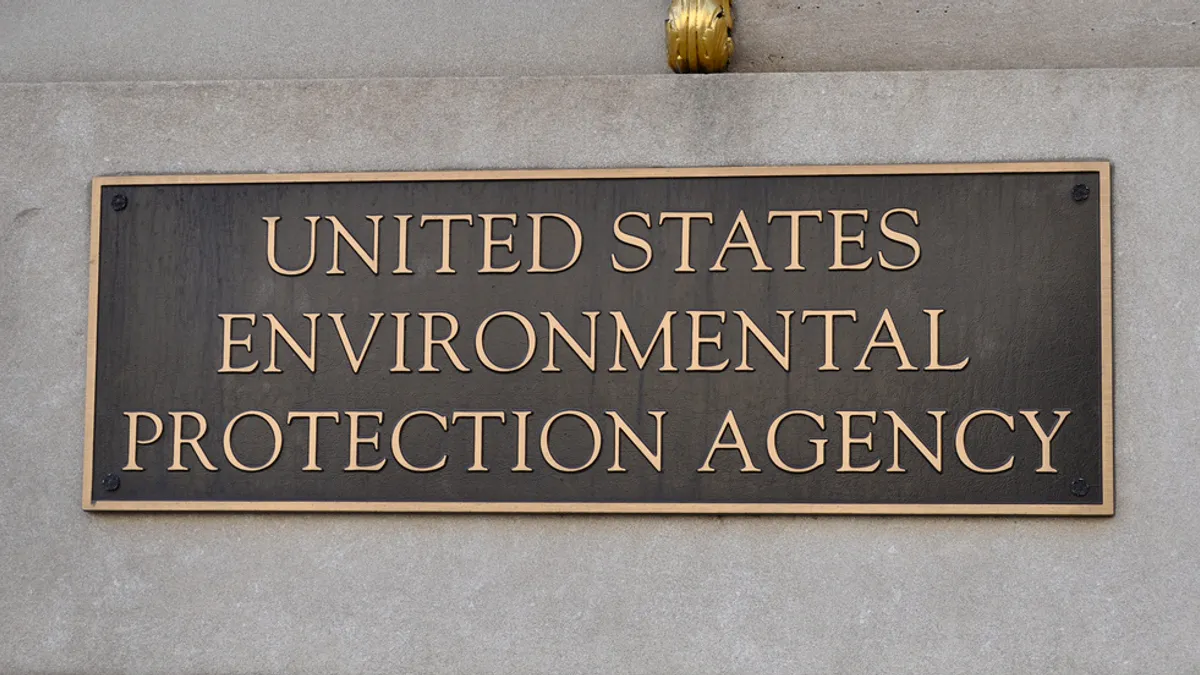Dive Brief:
- An initial rulemaking draft to rescind the Clean Power Plan is now circulating at the Environmental Protection Agency and officials are developing an economic analysis of the Obama-era regulation, according to a report from E&E News.
- While the draft language reportedly focuses on the agency's authority to roll back the Obama environmental rule, questions of how—or whether—to replace the rule have not yet been decided. E&E based the report on an anonymous administration source "with knowledge of the document." EPA did not respond.
- The economic analysis is likely to estimate that the cost of the Clean Power Plan would be much higher than the Obama administration's estimate of $5 to $8 billion. On Thursday, EPA Administrator Scott Pruitt said the rule would have cost $292 billion, citing numbers in a report prepared for the coal lobby.
Dive Insight:
The White House is pressing forward in its quest to roll back the Clean Power Plan, but so far a key question remains unanswered: What will replace it?
EPA Administrator Scott Pruitt has said the agency is still determining how it will move forward, but a decision may be nearing.
If the agency revokes the rule without developing some kind of a replacement, it will likely face lawsuits arguing the government has an obligation to regulate carbon. That route could set up a legal showdown over the scope of the Clean Air Act, the underlying statute, and the EPA's 2009 endangerment finding on greenhouse gases.
Alternatively, the rule could be replaced with less-stringent regulations, or Congress could update the Clean Air Act to say the EPA is not required to regulate carbon.
Last month, the U.S. Court of Appeals for the District of Columbia Circuit granted a White House request to pause ongoing litigation surrounding the Clean Power Plan as the Trump administration determines how it will move forward.
The CPP, the signature environmental accomplishment of President Obama, aims to cut emissions from existing power plants 32% by 2030. It is also a key enabling force behind the United States' commitment to the Paris climate accord—another issue where the Trump administration has yet to make a decision.
Last month, Secretary of Energy Rick Perry appeared to lend his support remaining at the global negotiating table in some form. Perry said he would not press for the United States to exit the Paris climate accord, and instead would counsel President Trump to "renegotiate" the country's participation.
Pruitt, meanwhile, has called for the administration to "exit" the accord, and this week a group of Republican lawmakers wrote to the White House urging a "clean break" from the international accord.
The 2015 agreement calls for keeping the impact of climate change below 2 degrees Celsius. For the United States, that would mean a roughly 80% economywide reduction in greenhouse gas emissions from 2005 levels.
Trump repeatedly vowed to exit the deal when campaigning last year, and some international leaders believe a decision could come at the G7 summit at the end of this week.















